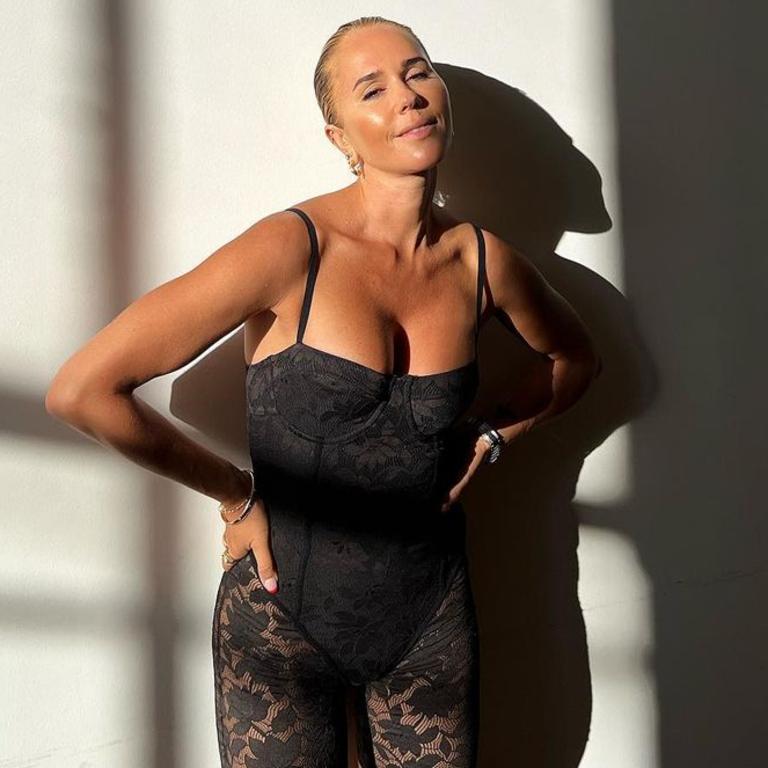Pip Edwards reveals shock perimenopause health diagnosis
Pip Edwards has revealed a private health diagnosis that left her in “shock” – sharing the one thing she wishes she’d known sooner.
Pip Edwards has revealed the “shock” moment she was diagnosed with perimenopause.
Appearing on the cover of last Sunday’s issue of Stellar, the P.E Nation co-founder – who was 39 at the time – said she initially ignored the hot flushes she was experiencing.
Given her fast-paced lifestyle and the sometimes-humid Sydney climate, she simply turned on the airconditioning.
But when she attended a basketball game for her son, Justice, and found herself so overheated and overwhelmed that she ended up in tears, the 42-year-old said she knew that something was wrong.
“I didn’t know what was going on. I had to take myself outside and literally was in a frenzy of trying to take my clothes off. I was like, this is not right!” Edwards recalled.

After appointments with her doctors and tests of her egg supply, the mum-of-one was told she was in perimenopause – the transition phase into menopause that usually happens in a woman’s mid-40s, but that up to 12 per cent of Australian women experience prematurely.
Common symptoms include hot flushes, decreased fertility, irregular menstrual cycles, and trouble sleeping.
“Like so many women, I’ve juggled being a mum and a business owner, had trouble sleeping and maintained a clean and lean diet,” Edwards told Stellar.
“And in the midst of it all, what I didn’t notice were the changes taking place to my female reproductive health. I never really thought to consider it.”
Edwards initially intended to freeze her eggs “just because I wanted the option” (of having another baby), “but then Covid hit and it was deemed elective surgery, so it was put on hold”.
The perimenopausal symptoms she was experiencing were so intense that she couldn’t prolong the start of her hormone replacement therapy – so Edwards had to process the fact she wouldn’t be able to carry another child.
“I was in absolute shock because I would never consider that not being an option,” she said. “I’m healthy. I’m fit. I’m in the prime of my life. If I knew my family history better (her mum was diagnosed with perimenopause age 40) or had conversations, then maybe in my early 30s I would have started preparing my options for whatever life I choose.”


In a bid to combat the stigma of discussing women’s reproductive health, Edwards has partnered with Witchery for its annual White Shirt Campaign – the profits of which go to funding ovarian cancer research.
While Edwards doesn’t suggest early menopause leads to cancer, she hopes women will break taboos and have more conversations about their wellness.
“You can look at my body and we can talk about fitness and exercise, but it means nothing,” she said.
“I wish I knew more about female health before my diagnosis. I simply didn’t make it a priority. Honestly, I do have regret around my unawareness, but unlike so many other women, my diagnosis was not ovarian cancer. This, however, was my wake-up call.”






